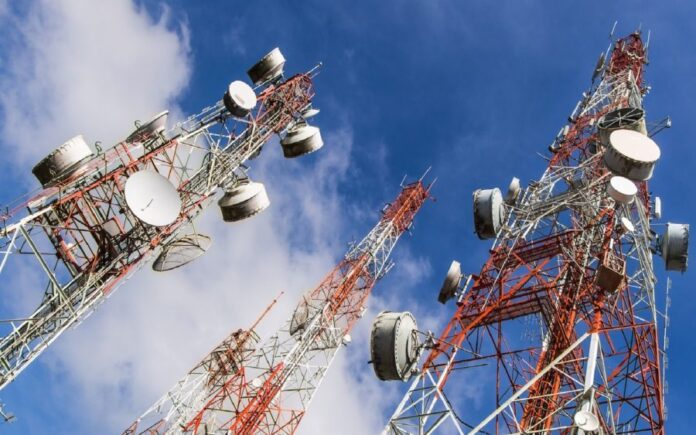To consolidate their position as one of the highest contributors to the Nigerian Gross Domestic Product(GDP), the telecom industry have reignited its desire to upscale its contribution to the economy in 2025 as its stakeholders have so far invested $1 billion to improve industry operations.
The $1 billion is mostly for procurement of equipment which would help boost the quality of their services in the country. Consequently, the poor services often experienced by consumers may reduce significantly.
Dr Aminu Maida, the Executive Vice Chairman, Nigerian Communications Commission (NCC), disclosed this in Lagos, Tuesday, at a Colloquium on a Legislative Agenda: The Nigerian Communications Act 2003 with the theme: The Nigeria Communications Act 2003, 22 years After: Challenges, Opportunities and Future Directions for a Digital Nigeria organized by the House of Representatives Committee on Communications.
Some of the positive impacts will be improved network coverage, as upgrading equipment can enhance network coverage, reducing coverage gaps and ensuring more Nigerians have access to reliable internet and mobile services.
Another thing, is that, it would increase their capacities. This because new equipment can increase network capacity , supporting more users and higher data demands, which can drive economic growth and digital inclusion.
Modern equipment can improve service quality, reducing dropped calls, and increasing data speeds, which can boost customer satisfaction.
Above all, new jobs will be created by investing in equipment in the telecom industry, both directly and indirectly, contributing to economic growth.
Maida said the $1 billion was more than what was invested last year and more than double what was invested in 2023.
While he disclosed that some of these equipment are just going to be built by the Original Equipment Manufacturers, said o he disclosed that orders have been placed already and should come in soon. This he said will have a positive effect on telecom services in Nigeria.
He assured that NCC and operators are collaborating to help build a more resilient and robust telecoms infrastructure for the benefit of all Nigerians, “But will take time and the support of all Nigerians is needed.”
He stated the need to review the Nigerian Communications Act (NCA) of 2003, citing the need to align it with evolving technological realities and Nigeria’s digital aspirations.
NCC EVC described the over two-decade-old legislation as “increasingly misaligned with 2025 and future realities.”
Maida highlighted the Act’s transformational legacy, including the rise of mobile subscriptions from less than 300,000 in 2001 to over 150 million today, and the telecom sector’s contribution of approximately 14 per cent to Nigeria’s GDP as of Q3 2024.
He, however, warned that emerging technologies and growing connectivity disparities have rendered several aspects of the Act outdated.
“Progress is not a destination, but a journey,” Maida stated. “The industry is experiencing a seismic shift driven by AI, 5G, quantum computing, IoT, and blockchain. Our regulatory framework must evolve just as quickly if we are to maintain momentum and close the digital divide.”
He lamented persistent structural barriers such as poor power supply, high cost of Right of Way (RoW) approvals, and rising operational costs — all of which hamper digital infrastructure expansion, especially in underserved rural areas.
He also flagged cyber security threats and escalating capital requirements as urgent challenges, adding that the current law does not adequately address the complexity of Nigeria’s rapidly digitising economy.
“The reality of 2025 demands we reimagine Nigeria’s digital future. A revised Communications Act must anticipate opportunities, not merely respond to challenges.”
The EVC applauded the National Assembly for convening the dialogue and pledged the Commission’s continued collaboration with lawmakers, industry stakeholders, and international partners to draft a future-ready legal framework.
His comments suggest a legislative review could be imminent, as Nigeria seeks to cement its place in the global digital economy.
On his part, Chairman, House of Representatives Committee on Communications, Peter Akpatason, said the Act’s regulatory framework has to be strengthened to promote innovation, competition, and investment.
“We therefore have to consider revising the Act to address emerging issues, such as 5G, artificial intelligence, and blockchain, and to ensure that our regulatory framework is flexible and adaptable to changing market conditions.
“We must consider strategies to promote digital entrepreneurship, innovation, and investment, including tax incentives, funding opportunities, and skills development programs. The new Act has to encourage measures for promoting innovation, including research and development initiatives, innovation hubs, and partnerships with international organizations,” he stated.
Other potential benefits of the $1 billion investment will include growing revenues. With improved network coverage and capacity, telecom operators can potentially increase revenues through higher subscription rates and data usage.
Upgrading equipment can facilitate the adoption of emerging technologies like 5G, IoT, and AI, driving innovation and economic growth.
Efficient equipment can reduce operational costs for telecom operators, potentially leading to lower prices for consumers.



